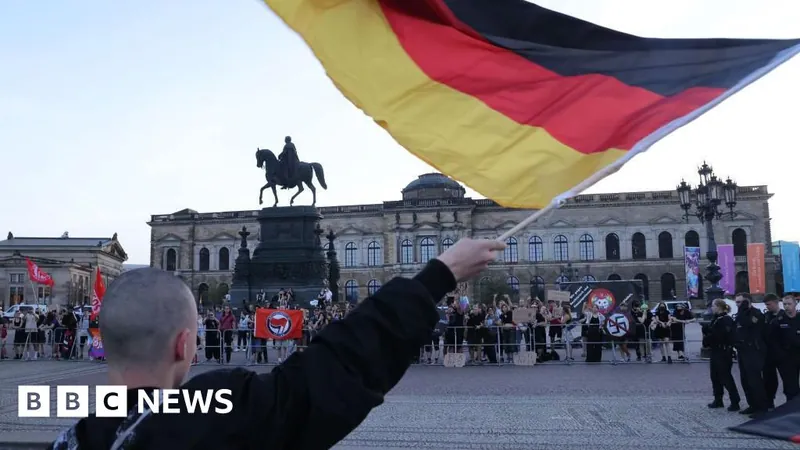
Brandenburg Election: Is Germany’s Welcome Culture Fading Away?
2024-09-21
Overview
As the eastern German state of Brandenburg prepares for its regional elections, a troubling trend emerges: the growing influence of the far-right Alternative for Germany (AfD) party is casting doubt on the country’s storied "welcome culture" for migrants. With polls indicating the AfD leading with approximately 28% of the vote, concerns are rising for the future of immigrants in Germany.
Government Response
Chancellor Olaf Scholz's left-leaning government has attempted to counteract the AfD's appeal by tightening border checks for migrants. He has also proposed increasing deportations for those whose asylum applications fail. Meanwhile, conservative opposition factions are calling for even stricter measures, including closing borders entirely to asylum seekers.
Historical Context
The current political landscape starkly contrasts with the policies of former Chancellor Angela Merkel, who famously declared "Wir schaffen das" or "We can do it," during Germany's 2015 refugee crisis that saw the country welcome 1.5 million refugees from war-torn regions like Syria and Afghanistan. Back then, vibrant scenes of volunteers providing food and toys to incoming refugees symbolized a proud, accepting nation.
Current Situation
Fast forward to 2023, and Germany now boasts over 3.48 million refugees, the highest number since the 1950s. Despite this, the mood concerning migration has soured significantly. A recent survey revealed that new arrivals have declined by 22% compared to the previous year, indicating a shift not just in public sentiment but also in the reception of migrants. Many local councils cite logistical and financial strains in coping with the influx, leading to intense debates over responsibility and resource allocation.
Voices of Refugees
The rise of far-right rhetoric has instilled fear among those who once found refuge in Germany. Parvin, a refugee who arrived in 2015, has just gained her German citizenship and completed her training as a social worker. However, she voices her discontent about the current climate, stating, "I don’t feel welcome here," attributing much of the negativity to media portrayals that paint refugees in a bad light.
This sentiment echoes in Sultana's story, another young refugee from Afghanistan who, despite her fluency in German and active political engagement, fears the clout of the AfD. She expressed concerns that her family might have to flee again due to the rising tide of far-right sentiment. "We are incredibly afraid… this has been our reality for years," she lamented.
Statistics and Trends
Statistics reveal an unsettling trend: a recent study by DeZIM found that nearly 25% of individuals with a migration background are contemplating emigration, with close to 10% solidifying plans to leave Germany. Many New Germans, who are leading successful lives due to their drive and ambition, are reconsidering their future in a nation that once embraced them.
Economic Paradox
Amidst this turmoil, Germany simultaneously seeks to attract skilled workers to bolster its economy. Yet, the reticent narrative and the actions aimed at curbing migration create a paradox that could threaten this goal. The atmosphere of apprehension may dissuade new talent from migrating, jeopardizing the prosperity that Germany hopes to attain.
Conclusion
As the Brandenburg elections approach, the question remains: Will the elections usher in a new chapter of hostility or can Germany rediscover its commitment to inclusivity and embrace the diverse tapestry of cultures that enriches the nation? The stakes have never been higher, and the outcome could redefine Germany’s identity for generations to come.




 Brasil (PT)
Brasil (PT)
 Canada (EN)
Canada (EN)
 Chile (ES)
Chile (ES)
 España (ES)
España (ES)
 France (FR)
France (FR)
 Hong Kong (EN)
Hong Kong (EN)
 Italia (IT)
Italia (IT)
 日本 (JA)
日本 (JA)
 Magyarország (HU)
Magyarország (HU)
 Norge (NO)
Norge (NO)
 Polska (PL)
Polska (PL)
 Schweiz (DE)
Schweiz (DE)
 Singapore (EN)
Singapore (EN)
 Sverige (SV)
Sverige (SV)
 Suomi (FI)
Suomi (FI)
 Türkiye (TR)
Türkiye (TR)